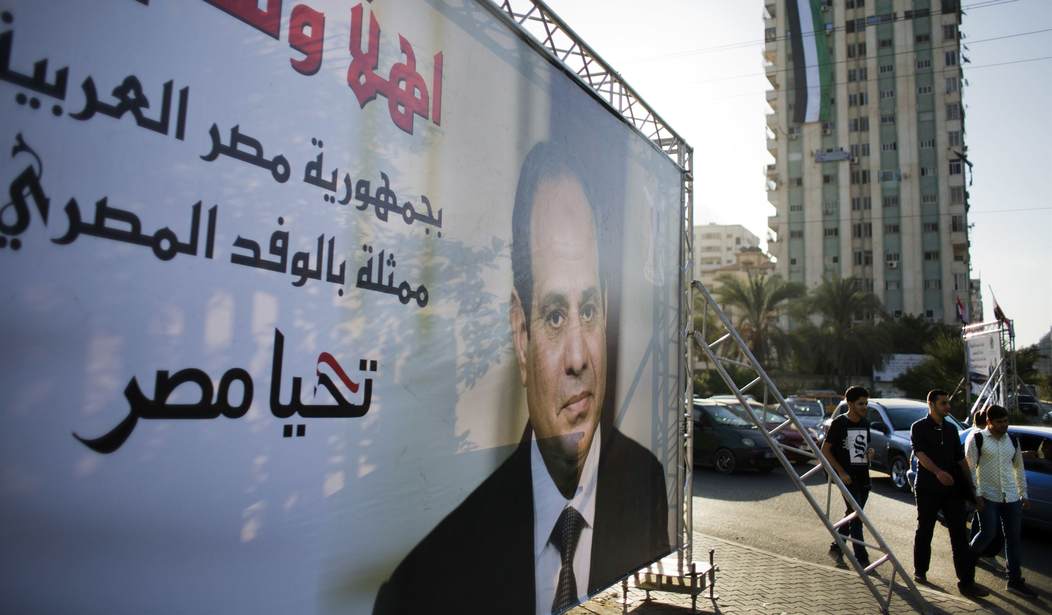The latest great controversy over Israel's war against Hamas is now focused on Bibi Netanyahu's plan to launch an offensive against Rafah, in southern Gaza on the border with Egypt. Joe Biden has already "warned" Israel not to strike the very overcrowded area without taking precautions to minimize the deaths and injuries of non-combatants. Netanyahu claims he plans to offer civilians in the area an opportunity to evacuate first. But now another actor has entered the debate. Egypt is saying that if Israel launches the attack on Rafah, they may void the peace agreement between their two countries that has stood for nearly fifty years. Egypt has largely stayed out of the conflict in Gaza up until now, but this would be seen as a major shift in their policy. So what's driving this change? As with most things in the Middle East these days, it's complicated. (Associated Press)
It was a warm handshake between the unlikeliest of statesmen, conducted under the beaming gaze of President Jimmy Carter. Sunlight streamed through the trees at Camp David, Maryland, as Egyptian President Anwar Sadat and Israeli Prime Minister Menachem Begin solidified a landmark agreement that has allowed over 40 years of peace between Israel and Egypt. It has served as an important source of stability in a volatile region.
That peace has held through two Palestinian uprisings and a series of wars between Israel and Hamas. But now, with Prime Minister Benjamin Netanyahu vowing to send Israeli troops into Rafah, a city in Gaza on the border with Egypt, the Egyptian government is threatening to void the agreement.
The Camp David Accords were one of the (very few) great successes of the Carter administration. Egypt and Israel had fought four wars in the previous decades but a breakthrough was made. Israel ceded Egyptian land they had conquered in the Sinai Peninsula. In exchange, Egypt agreed not to militarize the region and allowed Israeli shipping free passage in the Suez Canal. They have been able to peacefully coexist since then.
So why would Egypt consider backing out now? It's not because of some sudden, abiding concern over the people of Rafah. What they truly fear is that a full military attack would drive a million refugees over the border into their country. They have previously rejected proposals to evacuate large parts of Gaza into camps in their country.
Even if the peace accords are voided, that's not the same as an open declaration of war. Provided the refugee situation doesn't get out of hand, Egypt could do this temporarily just to voice their displeasure while largely continuing the status quo with Israel. Also, any escalation could wind up being costly to Egypt as well as Israel. Moving a large body of troops to the Israeli border would eat up a lot of resources. Also, Egypt receives significant foreign aid from the United States which is preconditioned on maintaining the peace accords. That aid could be reduced or cut off entirely.
Ending the peace accords would be bad for both countries so a way needs to be found to avoid this. Netanyahu has largely stuck to his guns (literally and figuratively) over the course of the conflict and conducted the war as he saw best for the interests of Israel. But this may be one case where it would be worthwhile to consider a longer pause and a sincere, thorough program to empty out the people currently sheltering in Rafah and establish safe sanctuaries for them in other parts of Gaza before proceeding. It's not an ideal solution and it would give the remnants of Hamas more time to slip away, but it also might be the only viable choice.







